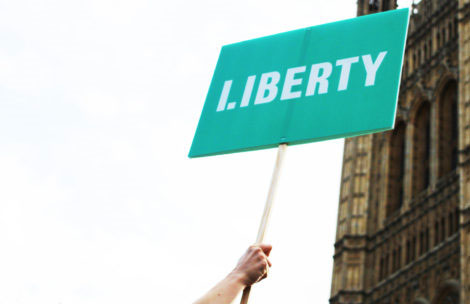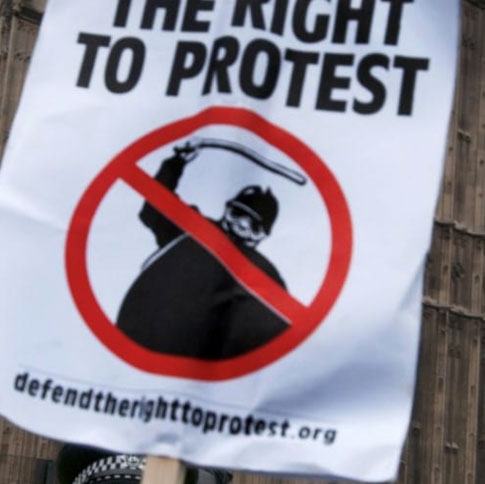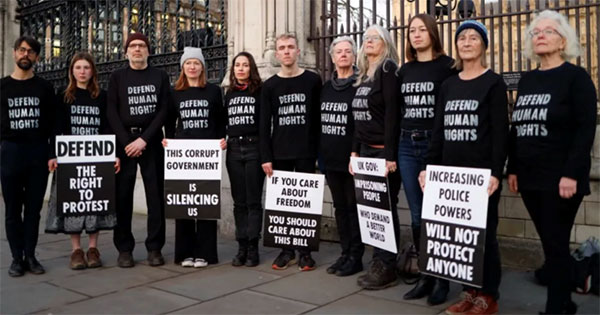
Yet again, new laws have been passed, without consultation or due process, to stop us oiks and troublemakers from protesting about what concerns us. Cynically brought forward to before the horrornation of Not-My-King Charles, and given royal assent by said numpty, from last Wednesday:
Protesters who block roads, airports and railways could face 12 months behind bars.
Anyone locking on to others, objects or buildings could go to prison for six months and face an unlimited fine.
Police will be able to head off disruption by stopping and searching protesters if they suspect they are setting out to cause chaos.
These laws can basically be used to criminalise anyone who takes to the streets for a cause they believe in, and suggest we’ve clearly got those in power rattled. A statement from the home secretary, Suella Braverman, said (with a straight face too) ‘The range of new offences and penalties match the seriousness of the threat guerrilla tactics pose to our infrastructure, taxpayers’ money and police time.’ Boo hoo.
Jun Pang, who works for Liberty, noted that ‘the government are using a statutory instrument to bring draconian measures that the House of Lords threw out of the bill back from the dead, once again evading scrutiny and accountability’ and declared that ‘it’s worrying to see the police handed so many new powers to restrict protest’.
Earlier in April, the Government passed the Policing Act which gave police more powers to shut down ‘seriously disruptive’ protests – a term that can (and no doubt will) be defined and re-defined by the Home Secretary to stop demonstrations the powerful don’t like.
Thanks to an enormous national movement against it, the House of Lords stripped some of the worst anti-protest proposals out of the Policing Act before it became law. But the Government resurrected its rejected plans with the Public Order Bill and have rushed it through.

Justice suggests we should be concerned because:
Protest empowers communities to stand up to injustice, influence decision makers and play an active part in democracy between elections.
Throughout history civil disobedience has been vital to safeguarding our democracy and securing our rights – from women’s right to vote, to the right to be protected from discrimination.
Heavy-handed crackdowns on protest grind democracy to a halt and violate our fundamental human rights.
Find out more at https://www.libertyhumanrights.org.uk/

Amnesty state that
Protest is an invaluable way to speak truth to power. Throughout history, protests have been the driving force behind some of the most powerful social movements, exposing injustice and abuse, demanding accountability and inspiring people to keep hoping for a better future.
Unfortunately, these precious rights are under attack and must be protected from those who are afraid of change and want to keep us divided. Governments and others with power are constantly finding new ways to suppress protest and silence critical voices. Global trends towards the militarization of police, the increase in the misuse of force by police at protests and shrinking civic space mean that it is becoming more difficult to stay safe while making your voice heard.
More at https://www.amnesty.org/en/what-we-do/freedom-of-expression/protest/
